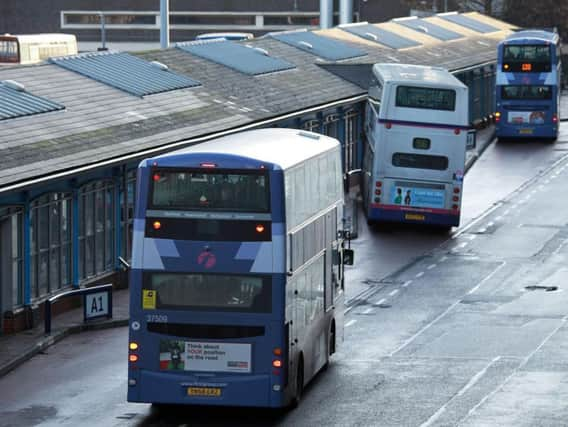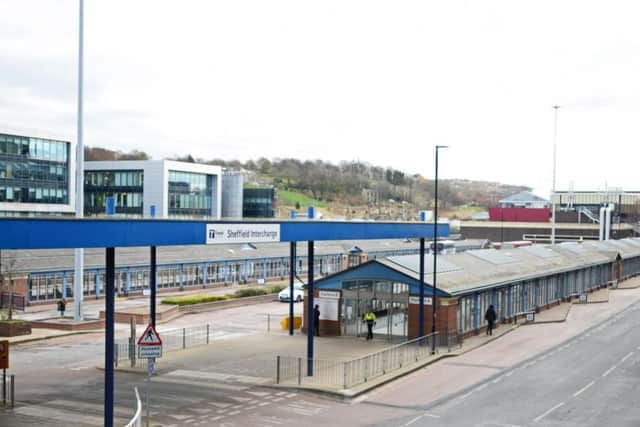'Unreliable and expensive public transport stopping Sheffield job seekers finding work'


The Joseph Rowntree Foundation (JRF) called for a redesign of the Government’s transport, housing and economic policy, after its research revealed public transport was 'holding back' low-income families from achieving a better standard of living.
Transport was consistently highlighted as a 'significant barrier' to work once the trade-off between the cost, reliability and speed of local public transport; and the prospect of low-wage, insecure work was considered, the study by researchers from the University of Sheffield and Sheffield Hallam University found.


Advertisement
Hide AdAdvertisement
Hide AdSheffield South East MP Clive Betts said the cost of public transport was a 'major problem' in the city, while Ed Ferrari, one of the report's authors, said reliability of bus services was also an issue across the city.
Mr Betts said: "The cost of public transport is a significant national problem but it's a major problem in our part of the world - it's really expensive. If you look at the history of public transport in Sheffield it's just got worse.
"Sheffield and the rest of South Yorkshire has probably had the biggest fare increase and the biggest reduction in the number of people using them in the country over the last 30 years and the two go hand in hand."
Mr Betts said he would do 'everything possible to support' Sheffield City Region Mayor Dan Jarvis, who pledged to work on public transport when he was appointed in May.


Advertisement
Hide AdAdvertisement
Hide AdHe added: "If people look at a job and what they are going to get is going to be eaten into by the cost of getting there, then that's going to be a deterrent to them accepting a job."
The report examined six areas in the North of England and Scotland, and found the unreliability of buses risked creating ‘cut-off commuter zones’ where people were unable to consistently guarantee punctuality when travelling to work; and that even when residents were willing to commute long distances, reliable services were not always available.
A 'disconnect' between the location of jobs and low-income neighbourhoods was also constraining people’s ability to seize job opportunities when they arise, with jobs for low-paid, unskilled and manual work tending to be based at out-of-town, peripheral locations poorly served by public transport.
Ed Ferrari, director of the centre for regional economic and social research at Sheffield Hallam University, said: “The report was very much about drawing up experience of bus users in Leeds, Manchester and Glasgow because these were the case studies, many of the issues are transferable not just across north but any part of the country outside London.
Advertisement
Hide AdAdvertisement
Hide Ad"The issues are particularly problematic in cities that have been most impacted by job losses over the last 20 years and you can certainly say Sheffield has.
"One of the issues we draw attention to in the report is that in most cases, city centres have become more vibrant in terms of employment but most are high-tech jobs and these kind of workers drive.
"Most low-paid jobs are now out of city centres on industrial estates and business parks and the bus services are poor and expensive."
Mr Ferrari said that the CityWide bus tickets, which allow passengers to use services run by any operator in Sheffield, weren't available in other parts of the country.
Advertisement
Hide AdAdvertisement
Hide AdBut he said reliability remained an issue with the length of some routes across the city causing delays to services.
He added: "Where we have bus companies that run these long routes they take an inordinate amount of time and it's having an effect on reliability.
"We have services that might run for a 90-minute or two-hour route and the issue for those seeking employment is that if they are late, they are often let go.
"If you look at bus services on the outskirts of the city, for example the Advanced Manufacturing Park at Catcliffe, the bus services there are chronically poor.
Advertisement
Hide AdAdvertisement
Hide Ad"If you miss a bus in the city centre to the AMP then you are going to be an hour and 15 minutes late because there is only one bus an hour and that's the sort of thing that employers just won't allow."
Action by the Government, combined and local authorities and transport bodies on bus franchising, planning and policy was needed to overcome transport barriers to employment, the JRF said.
Acting head of policy and research, Brian Robson, said: “The experiences of low-income residents make it abundantly clear that we must properly invest in transport networks within cities not just between them.
“With more powers being devolved to city and local leaders, now is the time to redesign our transport, housing and economic policies so that everyone can get into work and progress in their careers.”
Advertisement
Hide AdAdvertisement
Hide AdA Department for Transport spokesperson said it was spending more than £13bn over the next two years to 'transform' transport across the North.
He added: “We have also given councils extra powers to work in partnership with bus companies to improve the services passengers expect and deserve.
“We recognise that buses are vital in connecting people, homes and businesses, and we provide around £250 million every year to support these services up and down the country.”
South Yorkshire Passenger Transport Executive and Sheffield City Region have both been contacted for comment.